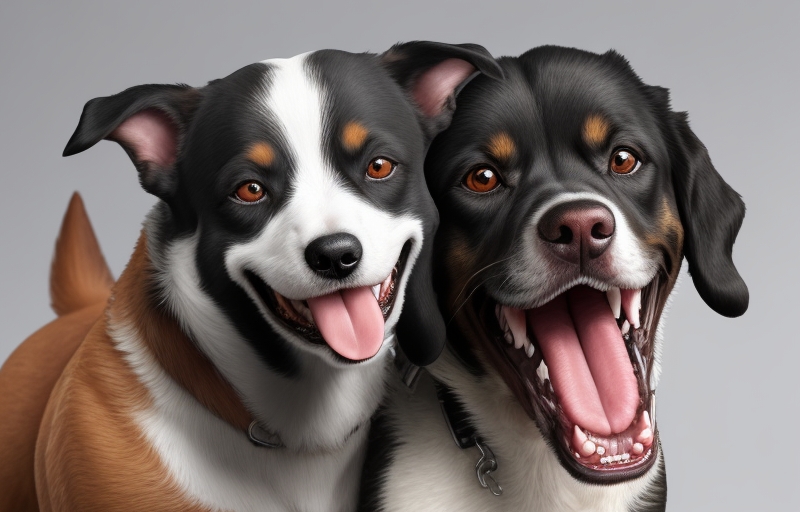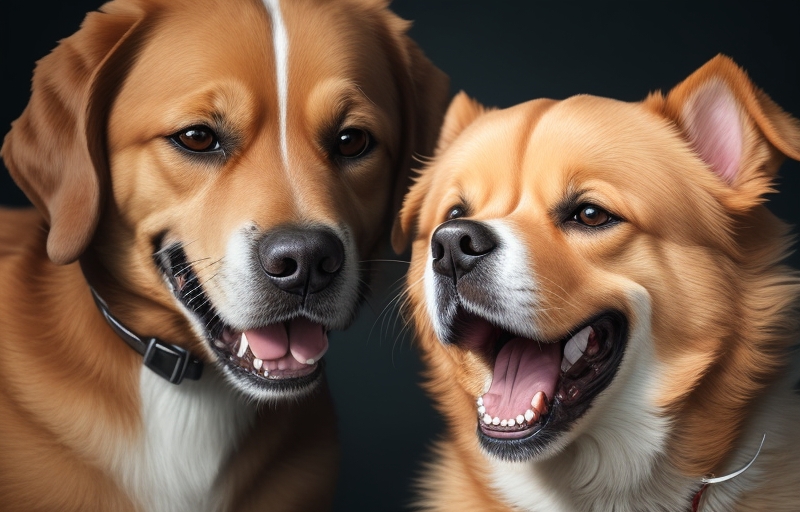Discover the causes, symptoms, and treatment options for lockjaw in dogs. Learn how to identify this condition and its potential complications, and find effective ways to manage and treat lockjaw in your canine companion.
Introduction
Understanding Lockjaw in Canines? Lockjaw, medically known as trismus, is a condition characterized by the involuntary contraction of the jaw muscles, restricting the opening of the mouth. While commonly associated with humans, lockjaw can also affect our canine companions. Understanding the causes, symptoms, and treatment options for lockjaw in dogs is crucial for ensuring their well-being.
Read Also: Dandruff in Dogs: Unraveling the Itchiness
Understanding Lockjaw in Canines
Causes of Lockjaw in Canines:
Dental Issues:

Dental problems such as periodontal disease, tooth abscesses, or misaligned teeth can lead to pain and discomfort, causing a dog to develop lockjaw.
Trauma or Injury:
Physical trauma or injury to the jaw area can result in muscle spasms and the development of lockjaw in dogs. Accidents, falls, or blunt force trauma may contribute to this condition.
Infections:
Bacterial or viral infections affecting the jaw or surrounding tissues can trigger lockjaw. Infections like tetanus or abscesses can lead to muscle stiffness and difficulty in opening the mouth.
Neurological Disorders:
Certain neurological conditions or disorders affecting the nerves controlling jaw movement can result in lockjaw. Neurological issues may disrupt the normal functioning of the muscles, leading to trismus.
Toxin Ingestion:
Understanding Lockjaw in Canines. Ingesting toxic substances, such as certain plants, chemicals, or medications, can adversely affect a dog’s nervous system, potentially causing lockjaw.
Symptoms of Lockjaw in Dogs:
Identifying the symptoms of lockjaw in dogs is crucial for prompt intervention. Common signs include:
Difficulty Opening Mouth:

Dogs with lockjaw will exhibit difficulty in opening their mouths, often showing signs of discomfort or pain when attempting to do so.
Excessive Drooling:
Experiencing difficulty in swallowing due to a locked jaw can lead to increased drooling in affected dogs.
Changes in Eating Habits:
Lockjaw can make eating challenging for dogs. They may show a reluctance to eat, display signs of pain while chewing, or avoid food altogether.
Behavioral Changes:
Dogs in pain may exhibit changes in behavior, such as irritability, aggression, or a reluctance to be touched around the mouth or jaw area.
Treatment Options for Lockjaw in Canines:

Veterinary Examination:
If you suspect your dog has lockjaw, it is crucial to seek immediate veterinary attention. A thorough examination will help identify the underlying cause and determine the most appropriate course of treatment.
Dental Care:
Addressing dental issues is a key aspect of treating lockjaw. Dental procedures, such as cleaning, extractions, or addressing abscesses, may be necessary to alleviate the condition.
Pain Management:
Pain relief is essential for dogs with lockjaw. Veterinarians may prescribe pain medications to help manage discomfort and improve the dog’s overall well-being.
Antibiotics:
If an infection is the root cause of lockjaw, antibiotics may be prescribed to combat the bacterial or viral agents responsible.
Physical Therapy:
In some cases, physical therapy exercises may be recommended to help relax and strengthen the jaw muscles. Stretching and massage techniques can aid in restoring normal jaw function.
Toxin Removal:
If toxin ingestion is identified as the cause, treatment will involve removing the toxic substance from the dog’s system. Supportive care may also be provided to counteract the effects of the toxin.
Potential Complications:
If left untreated, lockjaw in dogs can lead to complications such as malnutrition, weight loss, and dehydration due to difficulty in eating and drinking. In severe cases, the condition may also contribute to behavioral issues and a decline in overall quality of life.
Conclusion
Understanding Lockjaw in Canines? Lockjaw in canines is a concerning condition that requires immediate attention and appropriate treatment. Understanding the potential causes, recognizing symptoms, and seeking veterinary care are crucial steps in ensuring the well-being of our furry friends. Many dogs can recover and resume their normal, happy lives with timely intervention and proper care.
Read Also: Lockjaw in Dogs
Frequently Asked Questions (FAQs):
Q1: Can lockjaw in dogs be prevented?
While some causes of lockjaw, like trauma, may be challenging to prevent, maintaining good dental hygiene and promptly addressing any dental issues can reduce the risk of this condition.
Q2: How long does it take for a dog to recover from lockjaw?
The recovery time depends on the underlying cause and the effectiveness of the chosen treatment. Some dogs may show improvement within a few days, while others may require more extended periods of care.
Q3: Is lockjaw in dogs contagious to other pets or humans?
No, lockjaw itself is not contagious. However, if the underlying cause is an infectious agent, appropriate precautions should be taken to prevent the spread of the infection.
Q4: Can lockjaw be a sign of a serious medical condition in dogs?
Yes, lockjaw can be a symptom of severe medical conditions such as infections, dental problems, or neurological disorders. Seeking prompt veterinary attention is crucial for an accurate diagnosis and effective treatment.
